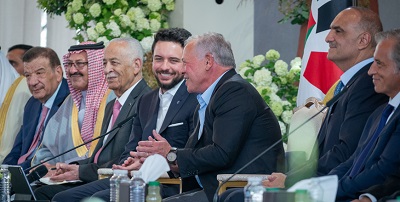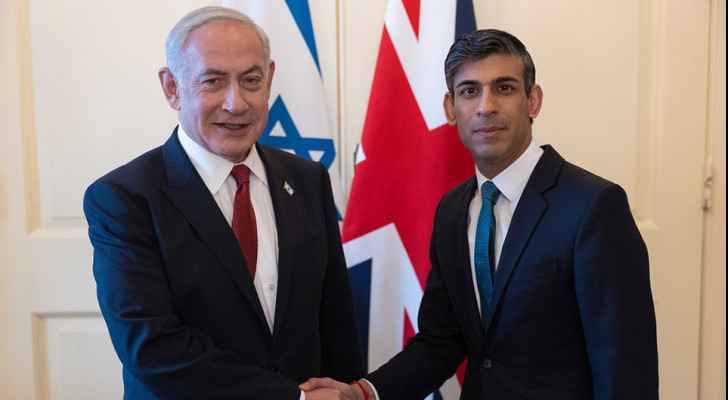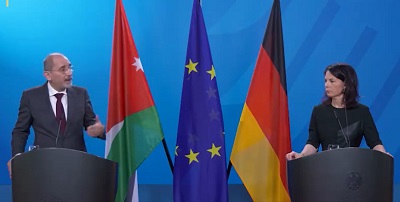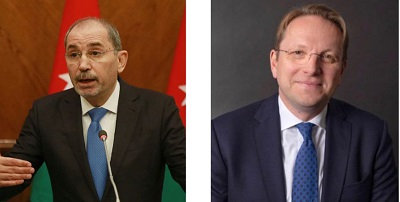Will France's Next Leader Manage to Form a Government?

AFP
If far-right leader Marine Le Pen or independent centrist Emmanuel Macron become French president next month it will beg a question: Can either subsequently muster enough backing to form a government?
If the polls are to be believed, France is heading towards the election of a leader who hails from neither the traditional left nor right for the first time since the Fifth Republic was founded in 1958.
French voters have traditionally handed a parliamentary majority to the newly elected president in general elections that follow within weeks.
But in this year's extraordinary contest, neither of France's usually dominant parties -- the Socialists and the conservative Republicans -- is expected to see their candidate get past the first round on April 23.
Communist-backed Jean-Luc Melenchon, riding high in the polls, would also likely struggle to form a parliamentary majority if he pulled off a shock win.
Pascal Perrineau, an analyst from Sciences Po university in Paris, said neither Le Pen nor Macron currently has even "the beginnings of a parliamentary majority".
And while general elections are usually a "ratification" of the presidential result, this year promises to be very different, he said.
"When the president has no majority, it's like an unfinished election."
- Rush for deals -Horse-trading would begin immediately after the May 7 second round runoff, with parties cutting deals to maximise their respective chances in the two-round June 11-18 parliamentary polls.
The "classic" scenario remains possible only if conservative candidate Francois Fillon were to clinch the presidency despite his legal woes.
His right-wing Republicans party and the centre-right UDI are allied in more than 90 percent of France's 577 voting districts.
Fillon, whose frontrunner status evaporated with revelations of financial impropriety, repeatedly reminds voters that he would have no trouble forming a government -- unlike Macron and Le Pen.
But polls currently show the likeliest outcome is a showdown between Macron and Le Pen, currently the joint favourites with about 24 percent each.
Polls show Macron would defeat Le Pen handily if the election were held today.
Macron, who was economy minister under outgoing Socialist President Francois Hollande, quit to form his own "En Marche" movement a year ago, claiming to be "neither of the left or of the right".
He can count on support from some Socialists as well as some members of the right-wing Republicans party as well as the small centrist Modem party with which he has formed an alliance.
Macron, who has promised that half his slate of general election candidates will be political newcomers, has said the issue of whether he can get a majority "is not something we worry about".
"There is no doubt that the French people will follow through on their choice and will give us the means to operate," he added.
Macron, however, has taken pains to avoid being too closely associated with the struggling Socialists.
When the 39-year-old won the endorsement of Hollande's former prime minister Manuel Valls late last month it was a mixed blessing, giving him the backing of a leading politician but weakening his claim to represent a break with the past.
- Beyond the FN -A major unknown is how many MPs Le Pen's National Front (FN) will have in the new parliament, although it is expected to be far more than the two seats it managed in 2012.
If Le Pen wins the presidency she would have to reach out far beyond her party even to achieve a relative parliamentary majority.
FN vice president Louis Aliot has predicted the party would attract support around its agenda of renegotiating France's terms with the European Union and calling a referendum on EU membership within six months of taking power.
Quietly, the FN is believed to be already reaching out to right-wing MPs in the hope of attracting around 20 to its cause, moves that have alarmed the Republicans party leadership sufficiently for it to warn it will kick out any member that makes a deal with the FN.
On the left, the Socialists hope to win a sizeable presence in parliament even if their presidential candidate, staunch leftist Benoit Hamon, crashes out in the first round as polls suggest.
Michel Pouzol, a Socialist lawmaker in the Essonne area south of Paris, said local name recognition would swing it for him.
"People tell me they'll make a strategic vote for Macron, but then vote for me in June," he said.
Latest News
 King from Mafraq: Jordan’s security, sovereignty above all considerations
King from Mafraq: Jordan’s security, sovereignty above all considerations Sunak tells Netanyahu to “allow calm heads to prevail”
Sunak tells Netanyahu to “allow calm heads to prevail” Safadi, Germany’s Baerbock discuss war on Gaza, regional escalation
Safadi, Germany’s Baerbock discuss war on Gaza, regional escalation FM, EU commissioner discuss development cooperation, regional de-escalation
FM, EU commissioner discuss development cooperation, regional de-escalation Jon Stewart unpacks Iran launching missiles at Israel
Jon Stewart unpacks Iran launching missiles at Israel
Most Read Articles
- Senate president, Iraqi president discuss bilateral ties, regional issues
- King from Mafraq: Jordan’s security, sovereignty above all considerations
- Sunak tells Netanyahu to “allow calm heads to prevail”
- JHCO dispatches 75-truck convoy of food aid to Gaza
- Sudanese rue shattered dreams as war enters second year
- UN agency finds unexploded 1,000-pound bombs in Gaza schools
- Egyptian Foreign Minister condemns potential Palestinian displacement as 'war crime'
- Jordan monitors citizens in UAE amid weather concerns
- Making emerging technologies safe for democracy - By Marietje Schaake and Steven Schuurman, The Jordan Times
- Massive fire engulfs Copenhagen’s historic stock exchange